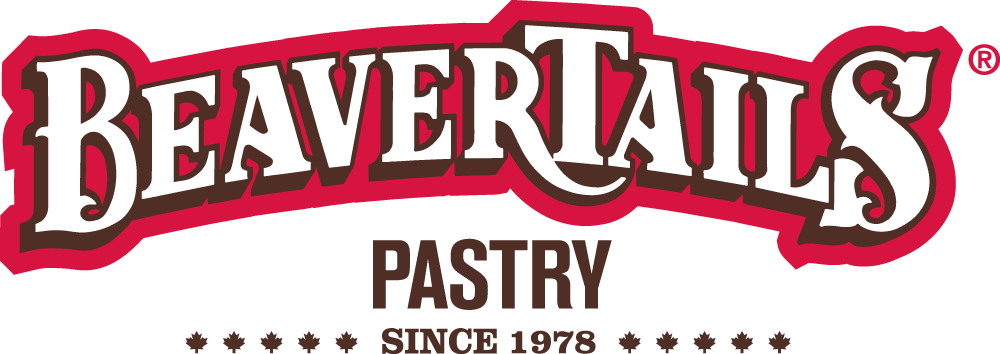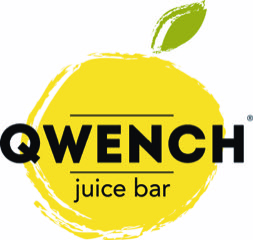Whether rewarding themselves with a sweet treat, grabbing a satisfying snack on the go, or discovering a new craveable delicacy, customers love these eats that can serve as a light meal or a quick bite
By Joelle Kidd
The average person lives a busy life, and it can be hard to carve out time for three square meals a day. Instead, we often rely on a range of quick bites throughout the day to replenish energy, break the mid-afternoon slump, or simply indulge in a postprandial sweet treat.
But snacks are no longer the guilty pleasure they once were, as Canadians’ reasons for reaching in the pantry have shifted along with changing food trends in recent years. According to Mondelez’s global State of Snacking report, Canadians are motivated by nutritional needs, comfort, and mood boosters when snacking. Snack-based franchises like the ones featured on the next page are well positioned to reap the rewards, as snacking habits around the world are expected to earn brands a revenue over $300 billion USD for the first time in 2027.
Whether you’re more of a sweet, salty, or savoury type, there’s a snack out there to fit every taste. Take a nibble or sip of these snack-based franchises and find the ideal nosh for you or your entrepreneurial goals.
BeaverTails
An iconic Canadian brand, BeaverTails has been serving up its signature crunchy-chewy pastry since 1978 at some of the country’s most unique locales.
“That’s what makes BeaverTails special,” says Pino Di Ioia, CEO. “We’re unique in all ways: our stores are unique, we’re in very unique areas, and we’ve got this unique product.” The signature product is a flat, fried pastry spread with sweet toppings—what Di Ioia describes as “not really a donut, not really a crepe—it’s its own thing, and it’s like nothing else you’ve ever had.”
With many of its locations at beautiful Canadian sites—from Ontario’s Blue Mountains to Banff, Alberta—inside amusement parks, or in mobile food trucks that travel between events, customers often associate the brand with fun, travel, and sightseeing. But the brand has brick-and-mortar locations too, where the product line has expanded to include ice cream, poutine, shareable Beaver Bites, and even a hot dog wrapped in the signature pastry. According to Di Ioia, about 46 BeaverTails locations now operate with this expanded menu.
This all leads to benefits for franchisees, who take advantage of the brand’s competitive cost structure and simple operations. “That, coupled with the fun brand, makes it very easy to get and keep employees,” Di Ioia notes.
The difficulty for the brand is finding ways to expand and ensuring customers are familiar with the enhanced product line. “The number-one complaint [from customers] is that we do not have enough places where they can enjoy our product,” says Di Ioia. “Which is a good complaint to have! But the challenge is that we are so closely associated with tourist locations that really, that is like asking us to invent more tourist locations. So we’ve had to adapt, and we’re starting to push the envelope.”
In recent years, this has meant opening permanent locations in mixed settings that see engagement from visitors and locals, like along Toronto’s waterfront. In Milton, Ontario, one franchisee owns a shared location of BeaverTails and Qwench Juice Bar (see page 49 for more on that brand), a pair that blends sweet treats and healthy eats.
With an eye toward the future, Di Ioia says BeaverTails is looking to continue expanding brick-and-mortar locations as well as introducing “some wackier flavours and less-expected variations” to the product line. They also aim to expand into the U.S. in 2025.
When it comes to potential BeaverTails franchisees, Di Ioia says they look for passionate individuals who are not looking to build a franchising empire with dozens of stores, but rather to succeed with a “love brand,” a fun concept with a devoted following. As he notes, “You’ve got to love the brand, you’ve got to love the product.”
Fuwa Fuwa Pancakes
“I think owning a franchise, it’s not just about profit. Profit is important, but it’s also about the lifestyle that you’re picking up,” says Benson Lau, director of business development for Fuwa Fuwa Pancakes. “Do you love serving your neighbourhood? Do you want to bring happiness, one bite at a time?”
That ethos has been at the heart of the Fuwa Fuwa brand. Lau and his co-founder opened the first location in Toronto’s Annex neighbourhood in 2018, a bustling, diverse area near the University of Toronto. The dessert cafe specializes in soufflé pancakes, an airy Japanese invention traditionally served at weddings and celebrations that merges homestyle pancakes with the French soufflé technique to create a towering, fluffy cake. “It’s really a combination of both. There should be a balance,” says Lau. “It’s not a Western food; it’s not an Eastern food either. It’s like a fusion: when you add them together, you celebrate diversity.”
This fusion has caught on with customers. The brand now boasts 13 locations across Ontario, plus five in Alberta, and expects to open locations in Montreal and Vancouver by the end of the year. They’ve also expanded into Asia, the U.K., the U.S., and France.
Lau says the brand’s main challenge has been introducing a potentially unfamiliar product to new markets and educating customers on what to expect. Soufflé pancakes are a light dessert, with only 10 grams of sugar and a base made mostly of egg whites; they also have to be whipped up fresh to order, meaning wait times are a little longer than customers might expect from a quick service restaurant brand.
Fuwa Fuwa has turned to technology to adapt to these challenges. “We are launching our app in Canada so people can order ahead of time and skip the wait,” says Lau. Social media marketing has also been a boon to the brand: one of its recent Instagram reels garnered 21.5 million views. “It’s good, because it’s free marketing for our franchisees as well.”
Constantly pushing the status quo is part of the brand’s ethos. “We are an energetic, young, professional team,” says Lau. “We love innovating products.” The brand’s global reach not only gives franchisees a boost in name recognition but also allows them access to a global research and development team, extensive online training, and an international community of supportive franchisees. “We need voices from around the world to keep our product innovative and on trend.”
The brand’s replicable system makes start-up easy, even for franchisees with no background in food service. Ideal Fuwa Fuwa franchisees will want to work in an open kitchen space where they can interact directly with customers while serving baked goods and specialty drinks.
Looking toward the future, Lau says the brand hopes to expand its selection of drinks and other products. “I hope we’ll be a neighbourhood cafe… for people to just come and hang out—grab cake, grab pancakes, or just a coffee to go.”
Qwench Juice Bar
Janet Lawlor, CEO of Qwench Juice Bar in Canada, was a dentist by trade. But after selling her Newfoundland practice and moving to Oakville, Ontario, she was looking for something new, exciting, and unique. “I came across the Qwench brand and literally fell in love with it,” says Lawlor.
The U.S.-based brand was founded in Los Angeles and is built around smoothies, juices, and healthful dishes made from scratch with whole ingredients. “What differentiates us from other concepts in the same industry would be our approach to freshness,” says Lawlor.
Everything down to the almond milk used in blended drinks is made in store daily; juices are squeezed fresh from produce pulled from the bountiful veggie display behind the counter.
“Customers are very knowledgeable now about what goes in their products, and they want to know, so they can watch it being made from start to finish,” she explains. Everything, including popular acai bowls and savoury food items made with chicken, tuna, or tofu, is customizable and made to order.
Lawlor brought the concept to Canada in 2020, with the first store opening in Oakville in March of that year—right before the pandemic lockdowns. “It was an interesting start, but we kept at it,” she says. Now, more than four years later, the brand has four stores in the Greater Toronto Area and is looking to expand westward. “We’re definitely open to new people who want to be on the forefront of health and wellness, [and] early adopters who see the benefit of new and fresh,” she says.
For now, the brand’s main challenge is educating potential customers on the health benefits of the product and getting the word out as a newer brand. “Once customers are in the door, I find that they enjoy the product,” notes Lawlor. Social media has been a boost, as happy customers are eager to post the brand’s photogenic, feel-good food. “I always joke, if you get a green smoothie from Qwench, you’re going to post that,” she says.
For those looking to buy a franchise, Lawlor says it’s important to do your homework. “Really understand the franchise model, and really love the brand that you’re buying. Because it’s going to be a big, big part of your life.
“It’s a big investment, so really look for something you love that you can stand behind. Make it a part of you.”




